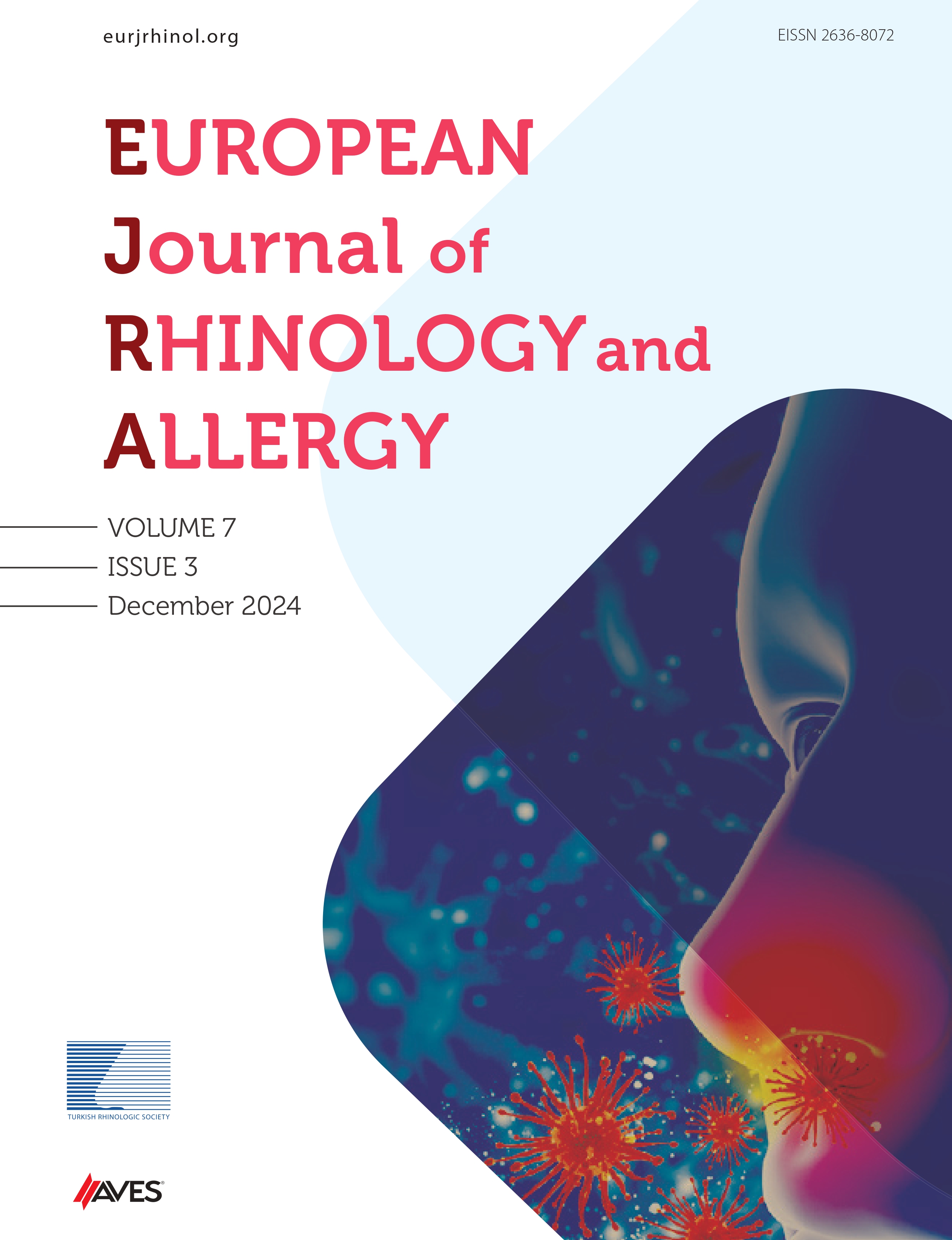Objective: The most frequent symptoms in COVID-19 infection are fever, cough, and fatigue. Also, olfactory and gustatory disorders can be seen with the infection. Despite an abundance of studies reporting anosmia and ageusia, there are limited studies on the development of cacosmia and cacogeusia. This study aimed to contribute to the literature on this novel disease by reporting and evaluating cacosmia and cacogeusia patients.
Methods: One hundred and twenty patients presenting to our clinic with loss of taste and smell after COVID-19 infection without subsequent improvement were examined in this study. Cacosmia and cacogeusia subsequently developed in 17 of these patients. Patients’ demographic characteristics such as age and gender, history of chronic disease, and smoking status were investigated. Laboratory tests and magnetic resonance imaging of the brain were performed.
Results: Cacosmia and cacogeusia developed in 17 (14.1%) patients out of 120 patients who had persistent anosmia and ageusia after COVID-19. No significant difference was observed in terms of gender, but mean age was statistically significantly lower in the group developing cacosmia. Decreased olfactory bulb volume was observed in two patients, interpreted as secondary to the infection.
Conclusion: Cacosmia and cacogeusia can develop in late COVID-19 and can significantly impair the quality of life of patients. There is no correlation between the severity of the disease and the rate of these symptoms. Currently, there is no efficient treatment for these patients. Further studies are required to reveal the underlying sensorineural pathology for the development of cacosmia and cacogeusia and treatment of these symptoms.
Cite this article as: Topal K, Atalay F, Kars A. Cacosmia and Cacogeusia in Patients with Persistent Anosmia and Ageusia due to COVID-19. Eur J Rhinol Allergy. 2021;4(3):87-90.

.png)

.png)